You need to install Flash Player to play this content.
A group of elderly women in a village in northern Uganda did something culturally taboo to express their anger - they began to strip.
In front of two government ministers, soldiers, policemen and hundreds of people from their community, they started removing their clothes.
Off came their tops - then some of the women pulled down their wrappers and skirts so they were completely naked.
"Lobowa, Lobowa!" they chanted, which means "our land" in the Luo dialect.
Others remained seated, but showed support by wailing in unison with with the women as they stripped.
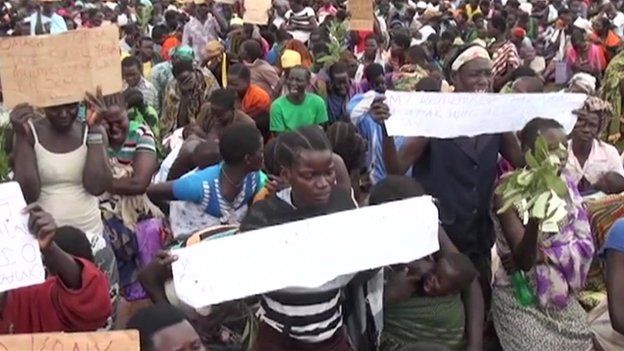
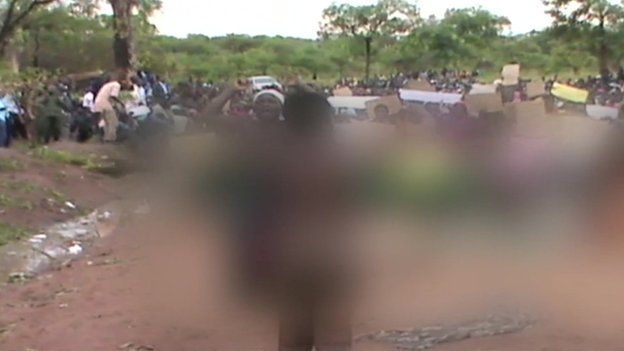
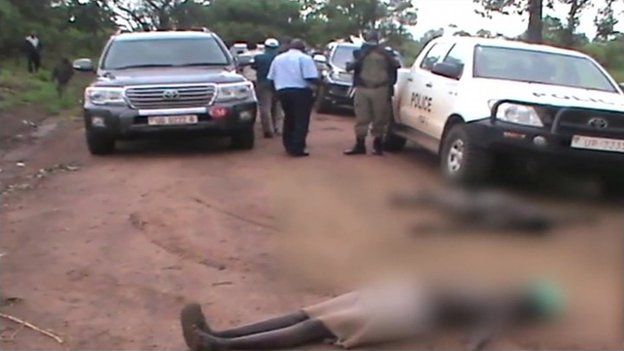
The incident, which forms part of a long-running land dispute between authorities and the local community, took place in Apaa village in the district of Amuru.
On that day, two government ministers had arrived with surveyors; their plan was to demarcate the land where the women and their community live.
But they were shocked by what they saw.
As a policeman took pictures, one of the women approached him by rolling on the ground and then raised her leg.
He ran away.
'Cursed'
For the Acholi people of northern Uganda, a woman stripping in public is laden with meaning.
It is more powerful than fighting as it is believed such actions invoke the worst of curses on the woman's enemy.
This land dispute has lasted nearly 10 years.

Magdalena Alum, Apaa resident:

"I undressed because I'm hurting a lot, my son Olanyah was killed. And now they've come back to send us away from our land"

At the heart of it is the fact that the Uganda Wildlife Authority (UWA) believes the people of Apaa and thousands of others are encroaching on a game reserve.
But the community disagrees and says this is their ancestral land.
For the half a dozen or so women who stripped that day, it is not just about property - it is a protest about abuses they say have been committed by security forces over the years.
Magdalena Alum, 58, told me her son was shot dead by the authorities in 2012.
"I undressed because I'm hurting a lot, my son Olanyah was killed," she said.
"And now they've come back to send us away from our land - yet this is my grandfather's land.
"I had 15 goats, now eight out of 15 have been killed and right now I have nothing."
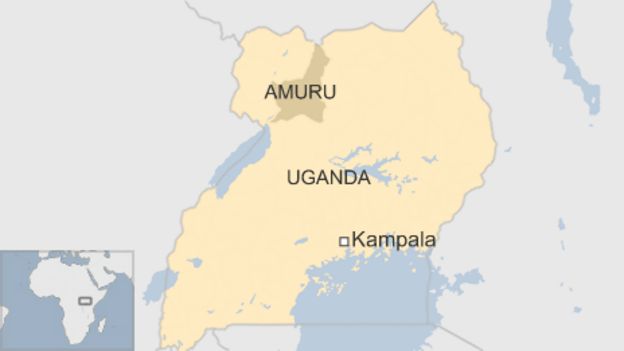
Sixty-two-year-old Karamela Anek, who also took part in the protest, says her son died after being beaten up.
"He kept complaining of chest pain, all the time chest pain until he died two years later."
Ms Anek says she owns an area of land measuring five sq km (1.9 sq miles), and will do anything to defend it.
Fallout of LRA conflict
Apaa is just one example of several ongoing land conflicts in northern Uganda.
The reason for this goes back to the 18-year insurgency in Uganda by the brutal Lord's Resistance Army rebel movement (LRA).
Many Acholi people at the time were moved to government camps for safety.
But when they returned, some faced questions about whether they really owned the land they say has always been theirs.
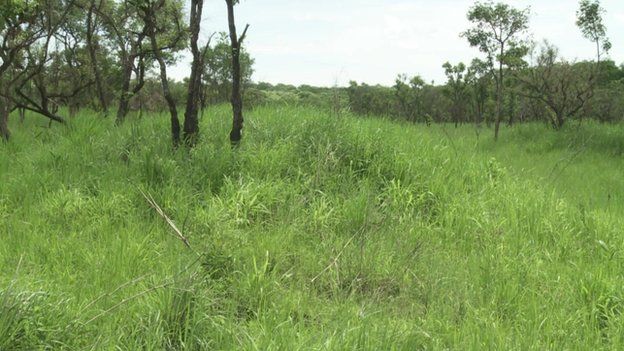
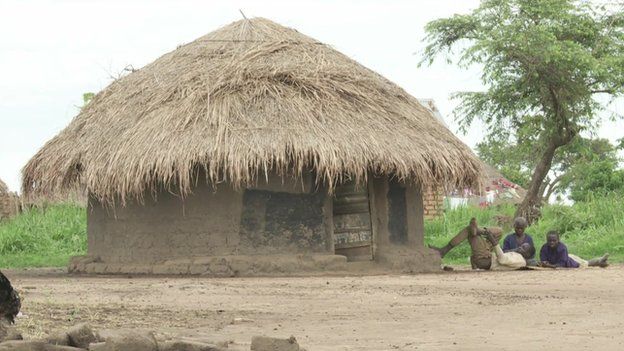
Uganda's Wildlife Authority wants to demarcate some 827 sq km, an area about half the size of London, and Apaa sits on the edge of this land.
The UWA does not deny accusations that the area will be leased to an investor - and it is known that a South African business person has shown interest in turning it into a private game park.
According to the residents of Apaa, some 21,000 people would be affected by the potential evictions.

John Makombo, UWA conservation director:

"We need to get back and talk to the people and tell them the truth. And once they understand it they should be able to know that the area where they are is a protected area"

The government does not know how many people are on the land.
'Tourism boost'
The director of conservation for the UWA, John Makombo - whose job is to make the area ready for investment - does not deny that security officials used violence against the people on the disputed land, which led to the death of Ms Alum's son.
"The person we know about who actually died was just out of accident because of a stray bullet," he told me.
"That was during the 2012 operation exercise that wanted to see the boundary marked and because of the riots and the need to keep the community safe, that's how that accident happened."
The government insists bringing investors on board will benefit the local economy by encouraging tourism, and it is expected to proceed with plans to formalise government control of the land.
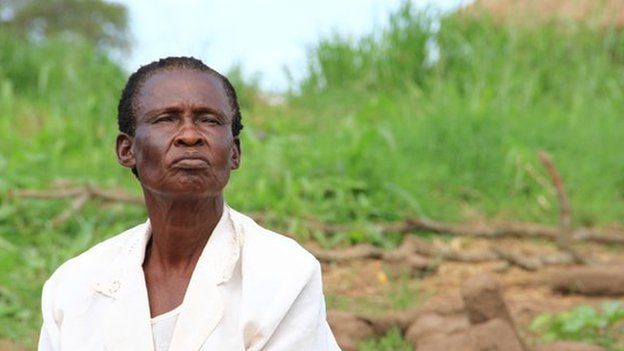
But Mr Makombo acknowledges the women's protest has caused the authorities to think about how they go about it.
"I think the protests are definitely sending a message and we've understood what the people say.
"We need to get back and talk to the people and tell them the truth," he says.
"And once they understand it they should be able to know that the area where they are is a protected area."
Those who face eviction will be offered compensation or resettlement, according to the Ugandan government.
Leaders in the village told the BBC they were open to negotiations.
But some of the women in Apaa say they will strip again if their rights are not respected.




Hakuna maoni:
Chapisha Maoni